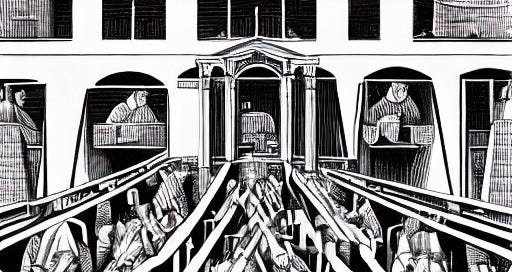Chris Cornell / Raheel Mahrus Ubaydah (Part 3)
Fragments of a future narrative
“Leave it alone, John,” the FBI agent warned. He’d come to John’s house months after Raheel’s arrest. “Leave it alone.”
It was John’s discovery, he explained over the phone, of “who the snitch was, just by bits and pieces of what Christopher had told me.”
“I met the informant some time back in 2014,” Raheel emailed. I was interviewing him via CorrLinks; a phone call was too time-constrained (federal prisoners tend to cut off after 10 minutes), too difficult to schedule.
“I was on-line sharing stuff,” he elaborated. “News. Updates from Syria and Iraq of the advancements and activities of Dawlatul al-Islamiyyah (The Islamic State).” Raheel believes, after seeing his posts, the Bureau “began using FISA on me. Illegally.”
(FISA is the Foreign Intelligence Surveillance Act of 1978. It “sets out procedures for physical and electronic surveillance and collection of foreign intelligence information.”)
It’s possible, what Raheel alleges. The Foreign Intelligence Surveillance Court, in documents released last May, described the FBI’s FISA violations as “persistent and widespread.” The Bureau misused a foreign intelligence database—looking up information on U.S. citizens—“in excess of 278,000” times.
However agents targeted Raheel, they instructed their undercover to message him. It was through Twitter, “on a post I commented on from the group called al-Rayat Tawhid. Asking for my help to get to Syria. I told him I might be able to help.”
They shifted to Kik, a freeware messaging app. “Nervous,” Raheel described himself then. “I thought he seemed a bit suspicious.”



